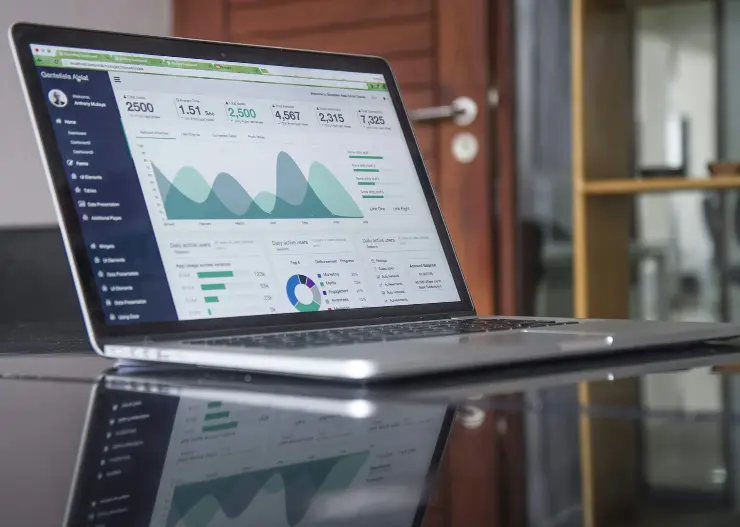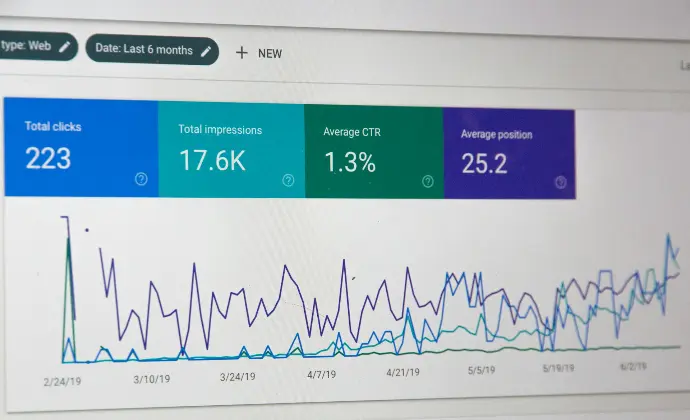🚀 Why Data-Driven Decisions Matter
1. Improved ROI Across All Channels
Data shows you where your money works best. For example:
-
Knowing your highest-performing ad creatives
-
Identifying which products convert most
-
Allocating budget to the most effective platforms
Stat: Businesses using data-driven marketing see 5–8x ROI improvement (Forbes).
2. Real-Time Optimization
Tools like Google Analytics, Meta Ads Manager, and Hotjar give you live performance insights. You can:
-
Pause underperforming ads instantly
-
Improve user experience based on behavior
-
Test & learn faster through A/B testing
3. Customer-Centric Decisions
Data reveals:
-
Who your real customers are
-
What they actually want
-
Where and when they interact with your brand
Fact: Companies that adopt data-driven personalization increase customer satisfaction by 20%.
Benefits of Data-Driven Strategy
🛠️ Core Tools for Data-Driven Marketing
Whether you’re an eCommerce brand, a SaaS platform, or a service provider, these tools help power your decision-making:
| Tool | Purpose |
|---|
| Google Analytics 4 | Website behavior tracking |
| Meta Ads Manager | Ad performance + A/B testing |
| Google Looker Studio | Real-time dashboards |
| Hotjar / Clarity | Heatmaps & user session insights |
| SEMRush / Ahrefs | SEO and competitor analysis |
| CRM Tools (Hubspot, Zoho, etc.) | Customer data and sales journey |
| Shopify Analytics / WooCommerce Reports | eCommerce insights |
📈 Real Use Cases of Data-Driven Strategy
1. Improving Ad Campaigns
A digital fashion brand ran 4 ad creatives for a summer sale. By analyzing CTR and ROAS across each:
-
2 were stopped
-
1 was refined
-
1 top-performer was scaled, leading to a 300% ROAS
2. Optimizing Website UX
Heatmaps revealed that most users never scrolled past 50% of the homepage. Based on this:
-
The brand moved CTAs higher
-
Conversion rate increased by 18%
3. Email Campaign Segmentation
Instead of sending a single offer to all subscribers, segmentation was done based on previous purchases. Result:
-
3X open rate
-
2.5X higher conversion
How to Build a Data-Driven Culture in Your Business?
1. Set Measurable Goals
Every campaign or action should have a KPI:
-
Website visits
-
Conversion rate
-
Email open rates
-
ROAS, etc.
2. Track What Matters
More data ≠ better decisions. Focus on:
-
Revenue-generating insights
-
High-impact behavior (cart abandons, scroll depth, etc.)
3. Invest in Reporting
Build easy-to-read dashboards for your team. Tools like Looker Studio, Google Sheets, and Airtable can work wonders.
4. Test Everything
From subject lines to landing pages — run A/B tests. Let data guide the winner.
5. Educate Your Team
Train your team on data literacy. Empower decision-makers to interpret and use analytics effectively.
🧠 Data Doesn't Lie—It Leads
Guessing is risky. Data is reliable. Whether you're launching a new product, scaling ads, or building loyalty—data gives you the edge.
And in 2025, where consumer attention is harder than ever to grab, the brands that succeed are not the loudest, but the smartest.
So, are you still guessing?
Or ready to analyze, act, and grow?


